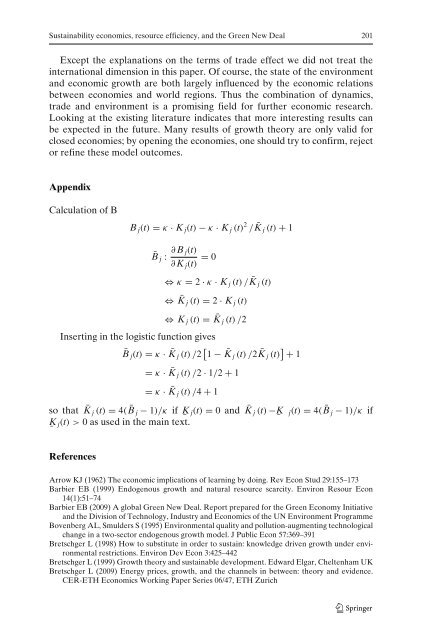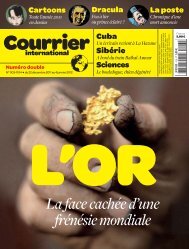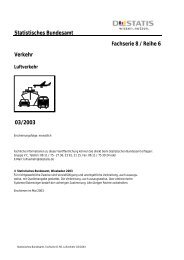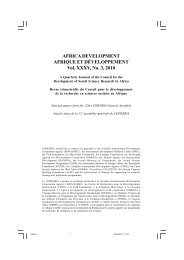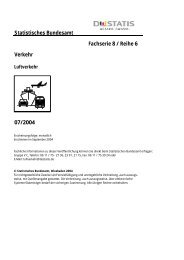The international economics of resources and resource ... - Index of
The international economics of resources and resource ... - Index of
The international economics of resources and resource ... - Index of
You also want an ePaper? Increase the reach of your titles
YUMPU automatically turns print PDFs into web optimized ePapers that Google loves.
Sustainability <strong>economics</strong>, <strong>resource</strong> efficiency, <strong>and</strong> the Green New Deal 201<br />
Except the explanations on the terms <strong>of</strong> trade effect we did not treat the<br />
<strong>international</strong> dimension in this paper. Of course, the state <strong>of</strong> the environment<br />
<strong>and</strong> economic growth are both largely influenced by the economic relations<br />
between economies <strong>and</strong> world regions. Thus the combination <strong>of</strong> dynamics,<br />
trade <strong>and</strong> environment is a promising field for further economic research.<br />
Looking at the existing literature indicates that more interesting results can<br />
be expected in the future. Many results <strong>of</strong> growth theory are only valid for<br />
closed economies; by opening the economies, one should try to confirm, reject<br />
or refine these model outcomes.<br />
Appendix<br />
Calculation <strong>of</strong> B<br />
B j(t) = κ · K j(t) − κ · K j (t) 2 / ¯K j (t) + 1<br />
¯B j : ∂ B j(t)<br />
= 0<br />
∂ K j(t)<br />
⇔ κ = 2 · κ · K j (t) / ¯K j (t)<br />
⇔ ¯K j (t) = 2 · K j (t)<br />
⇔ K j (t) = ¯K j (t) /2<br />
Inserting in the logistic function gives<br />
¯B j(t) = κ · ¯K j (t) /2 � 1 − ¯K j (t) /2 ¯K j (t) � + 1<br />
= κ · ¯K j (t) /2 · 1/2 + 1<br />
= κ · ¯K j (t) /4 + 1<br />
so that ¯K j (t) = 4( ¯B j − 1)/κ if K j(t) = 0 <strong>and</strong> ¯K j (t) −K<br />
K<br />
¯ ¯<br />
j(t) >0 as used in the main text.<br />
¯<br />
References<br />
j(t) = 4( ¯B j − 1)/κ if<br />
Arrow KJ (1962) <strong>The</strong> economic implications <strong>of</strong> learning by doing. Rev Econ Stud 29:155–173<br />
Barbier EB (1999) Endogenous growth <strong>and</strong> natural <strong>resource</strong> scarcity. Environ Resour Econ<br />
14(1):51–74<br />
Barbier EB (2009) A global Green New Deal. Report prepared for the Green Economy Initiative<br />
<strong>and</strong> the Division <strong>of</strong> Technology, Industry <strong>and</strong> Economics <strong>of</strong> the UN Environment Programme<br />
Bovenberg AL, Smulders S (1995) Environmental quality <strong>and</strong> pollution-augmenting technological<br />
change in a two-sector endogenous growth model. J Public Econ 57:369–391<br />
Bretschger L (1998) How to substitute in order to sustain: knowledge driven growth under environmental<br />
restrictions. Environ Dev Econ 3:425–442<br />
Bretschger L (1999) Growth theory <strong>and</strong> sustainable development. Edward Elgar, Cheltenham UK<br />
Bretschger L (2009) Energy prices, growth, <strong>and</strong> the channels in between: theory <strong>and</strong> evidence.<br />
CER-ETH Economics Working Paper Series 06/47, ETH Zurich


